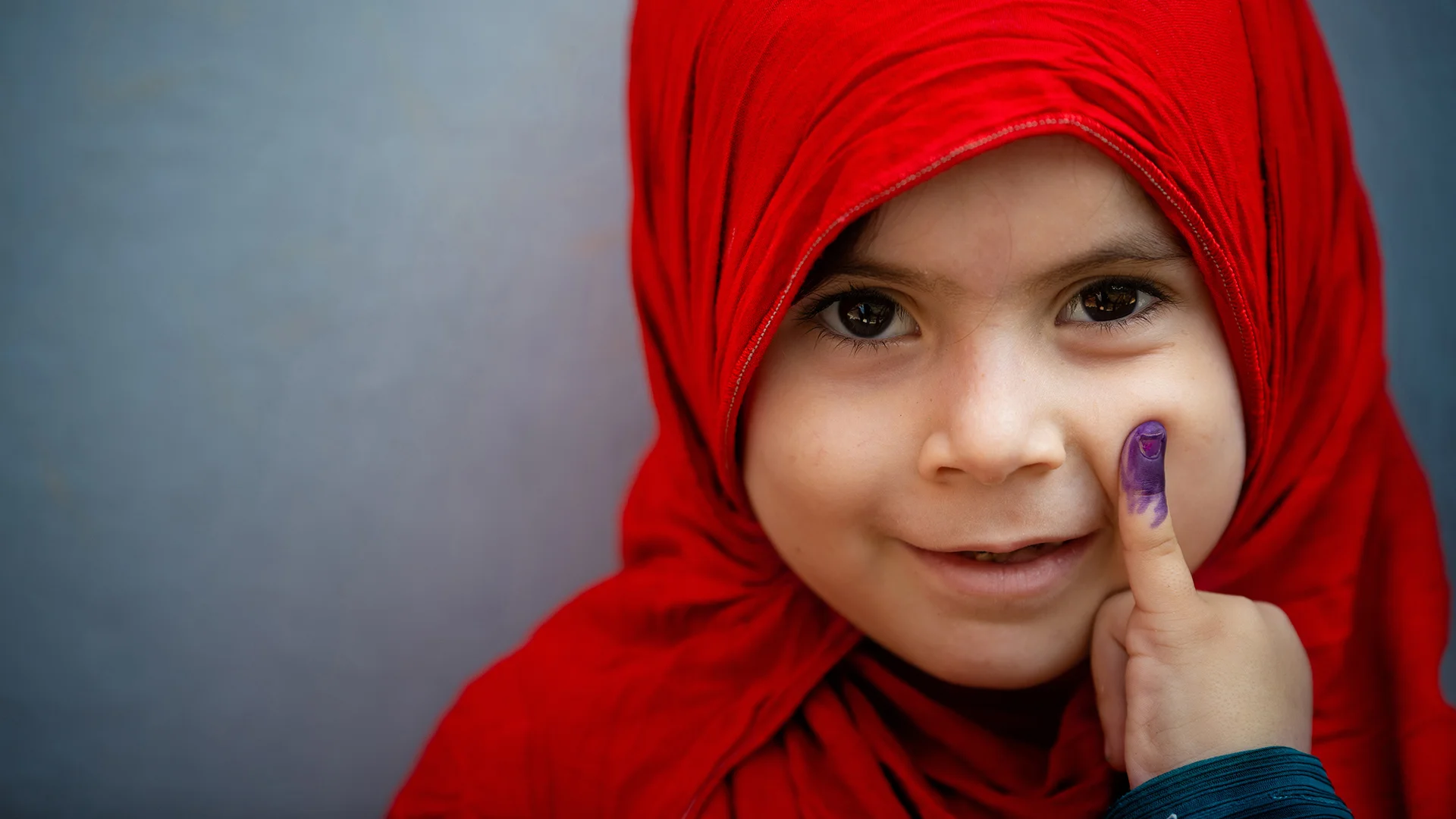Every child should be protected from preventable diseases. That is why UNICEF organizes global vaccination campaigns and distributes more than 2 billion doses of vaccines each year.
The situation
Vaccination is one of the most successful and cost-effective public health investments there are. Global vaccination campaigns save the lives of two to three million children each year. Smallpox has been eradicated since 1979, and measles kills almost 80 percent fewer children today than in 2000. More than 350,000 people contracted polio in 1988; in 2020 this was down to just 42 cases.
Despite a high level of commitment, 1.5 million children still die each year from vaccine-preventable diseases such as measles, whooping cough, diphtheria, polio, tetanus and tuberculosis. This is because only four out of five babies receive the necessary vaccine protection. Two-thirds of unvaccinated children live in just nine countries: Angola, Brazil, the Democratic Republic of Congo, Ethiopia, Indonesia, Mexico, Nigeria, Pakistan and the Philippines.
The COVID-19 pandemic led to the temporary suspension of vaccination campaigns in at least 68 countries. As a result, 80 million children under the age of one did not receive the necessary vaccinations.
How UNICEF helps
UNICEF is working to ensure that children around the world receive vaccine protection, including in remote areas where there are no health centers, and in conflict zones. The Children’s Fund procures 2 billion vaccines each year for routine vaccinations, ensures they are transported properly, delivers coolers, trains healthcare workers, informs parents and ensures that key decision-makers such as teachers advocate for and support vaccination campaigns.
As the lead procurement partner of GAVI, the Vaccine Alliance, UNICEF has helped reach more than 760 million children with life-saving vaccines over the past 20 years, preventing more than 13 million child deaths.
